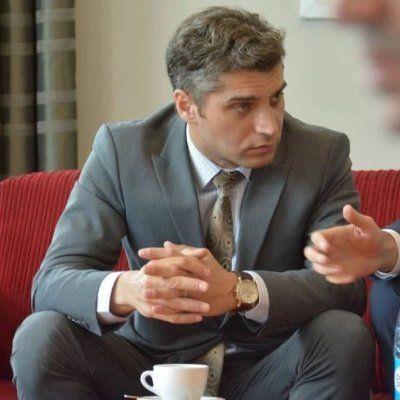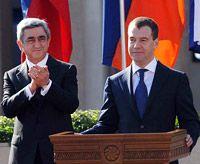
Yerevan-Russia Border Dispute: Smell Of Danger In S Caucasus

Elnur Enveroglu Read more
When Armenia tried to deny and distort the realities in the South Caucasus, it was considered that it was only related to Azerbaijan. But as time passed and justice was restored, it began to be seen from a wider perspective.
In fact, the Second Garabagh War was not only the point of restoration of Azerbaijan's sovereignty but also reflected the image of Armenia in a broad sense. Until that time, Armenia, which tried to show itself as an innocent sheep under the protection of Russia, suddenly unmasked its true face.
The return of Garabagh to Azerbaijan was inevitable because both the balance of power and the geopolitical situation were at a level that complemented each other. Since thirty years is already quite a time, the balance of power must have had its effect. Armenia's weakness was its failure to wake up from the euphoria of the last three decades, its ignorance of the geopolitical situation, and last but not least, its failure to renew its military defence system.
Sometimes inaccurate calculations lead to more misfortune than failure. Armenia's approximate approach towards Azerbaijan led to the most humiliating defeat in the 44-day war. Losing more than 5,000 soldiers and displaying military weapons in Baku squares was the most terrible blow against the military and political structure of a country. Of course, the one who experienced this defeat was Armenia, the most intransigent state in the South Caucasus.
Armenia continues the same policy today, not only against Azerbaijan but even against Russia, which has laid its foundation in the South Caucasus.
In 1995, when the agreement was signed on the location of 102 Russian military bases in the territory of Armenia called Gyumri, Azerbaijan's Garabagh was under the occupation of Armenia. Finally, this agreement is extended until 2044 based on the agreement signed between the then president of Russia, Dmitry Medvedev, and Serzh Sargsyan in 2010. Moreover, according to the agreement reached between the parties, Russia has been controlling the land and air borders of Armenia since September 1992. Russian border guard troops are based in Gyumri, Armavir, Artashat, Meghri, and at Zvartnots airport.
In addition, unlike post-Soviet countries such as Azerbaijan and Georgia, Armenia is the only South Caucasus country that wants to remain in the CSTO (Collective Security Treaty Organisation) for another period of time.
Thus, in May 1992, Armenia, Russia, and four Central Asian
states – all former Soviet republics – signed the Tashkent Treaty.
A year later, Georgia, Azerbaijan, and Uzbekistan signed as well,
but they did not renew their participation in 1999, opting instead
to align with Ukraine and Moldova in the GUUAM group.
A decade later, the original six members of the Tashkent Treaty
became the CSTO.
The point is that Armenia does not want to accept both the agreement it signed in September 1992 and its re-joining of the CSTO in 1999. Prime Minister Nikol Pashinyan has repeatedly raised two issues since he turned to the West. However, Armenia, which is powerless on the basis of the document against the Russian side, can't get rid of it, even though it tries different ways. The Speaker of the Armenian Parliament, Alen Simonyan, made an interesting statement to the local media yesterday, touching on this issue. He noted that "Armenia itself controls" its borders. Whether it is true or false, this approach by the Armenian official has raised serious questions. If the other party reacts more seriously to this, what can await Armenia? How is it that Armenia expresses such a harsh attitude towards official Moscow, even knowing the documents it signed rely on Western forces?
It is clear that within Europe, France, by giving a courage to Armenia, uses it as a shield and opens a new front against Russia. Relying on half-done Ukrainian tactics and thinking that Russia has fallen into a weak position, the West is only checking its power in the South Caucasus through Armenia. But the danger is imminent. The security of the South Caucasus is already in question. There is no doubt that France's military support and Armenia's heedless actions are shaping the signs of a new war in the region. Because the West, which has run out of patience with Russia, has no tolerance for other obstructions on its way. Azerbaijan, which does not want a new war to start in the South Caucasus, is seen as a real threat to both Armenia and the West.
Legal Disclaimer:
MENAFN provides the
information “as is” without warranty of any kind. We do not accept
any responsibility or liability for the accuracy, content, images,
videos, licenses, completeness, legality, or reliability of the information
contained in this article. If you have any complaints or copyright
issues related to this article, kindly contact the provider above.




















Comments
No comment